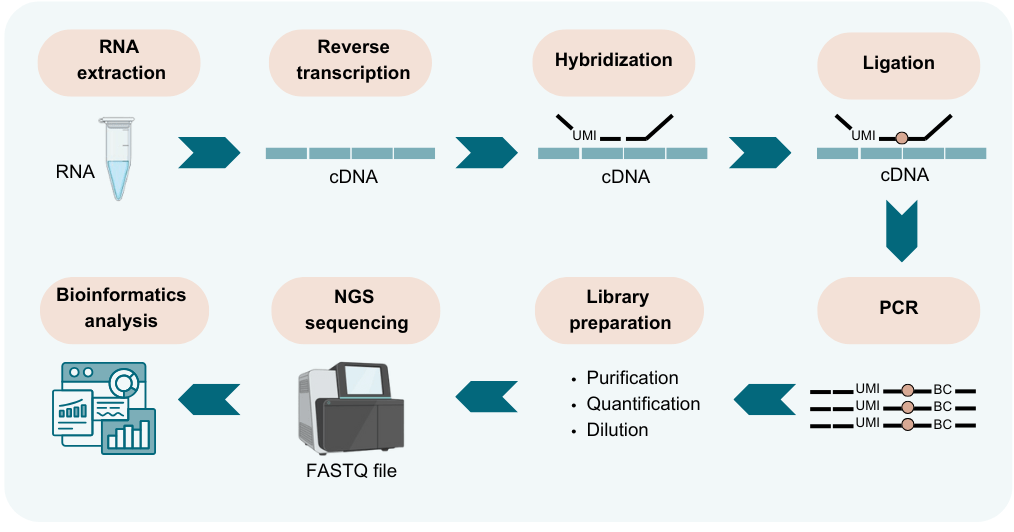What is RT-MLPSeq?
RT-MLPSeq (reverse transcriptase multiplex ligation-dependant probe amplification associated to a high-throughput sequencing) is an innovative technology that allows markers of interest to be analyzed with great precision. Thanks to this semi-quantitative method, it is possible to simultaneously evaluate several genetic markers, such as genes, mutations and chromosomal translocations, using pairs of oligo-nucleotide probes specific for each of them. This approach ensures reliable detection, essential for research and diagnosis of complex diseases.
State-of-the-art technology for reliable and rapid multi-step analysis

- RNA extraction : According to the user's usual conditions. Samples can be from fresh, frozen, or fixed and paraffin-embedded (FFPE) tissue.
- Reverse transcription into cDNA : The mRNA is converted into complementary DNA (cDNA) to ensure targeted analysis.
- Hybridization of specific probes : Unlike conventional RT-PCR, oligonucleotide probes hybridize to the exon-exon junctions of the cDNA, ensuring specific analysis without interference with genomic DNA. The integration ofunique molecular identifiers (UMI) allows the number of initial unique molecules to be quantified.
- Ligation and amplification : Close probes are linked using a ligase, then amplified by PCR while integrating barcodes (BC) for precise identification of samples and adapter sequences for sequencers.
- Next Generation Sequencing (NGS) : High-throughput sequencing makes it possible to test several samples and dozens of genes at the same time. Only 100,000 reads are needed for robust results. The data is analyzed via the bioinformatics platform RT-MIS, which allows rapid and reliable interpretation of the results.
Why choose RT-MLPSeq?
- Semi-quantitative method : Allows precise assessment of biomarker expression levels.
- Simultaneous analysis of several markers : Effective detection of genes, mutations and chromosomal translocations.
- Increased specificity : Accurate detection of exon-exon junctions
- Compatible with various sample types : Suitable for fresh, frozen or paraffin-embedded tissues and requires only a small quantity of RNA.
With RT-MLPSeq, access cutting-edge analysis for a better understanding of genetic profiles.

